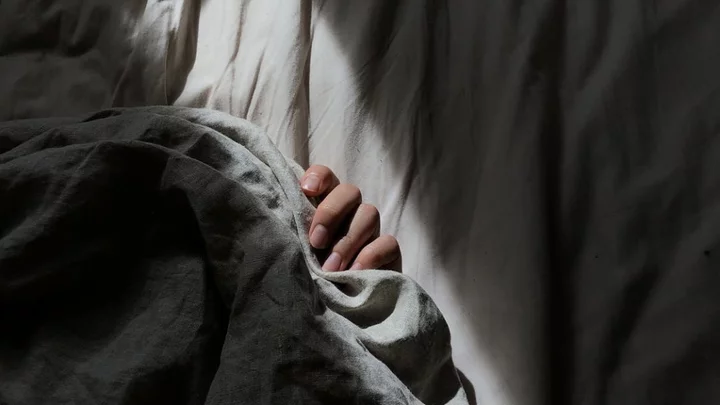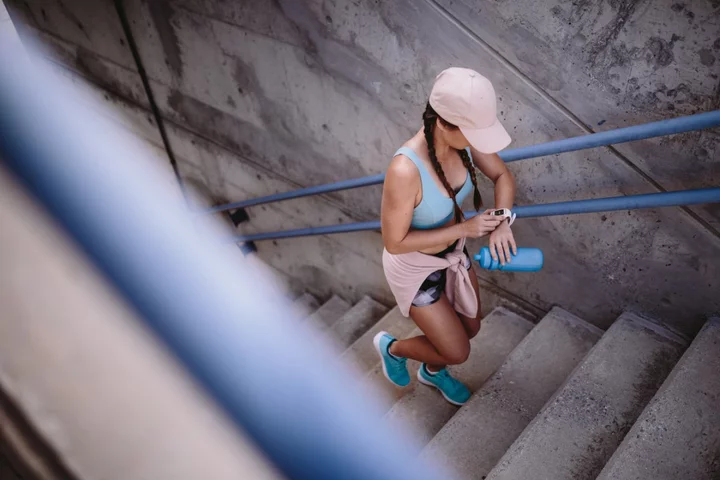
Arajet Announces New Route to Montreal With Fare Starting at 155 USD
SANTO DOMINGO, Dominican Republic--(BUSINESS WIRE)--Jul 27, 2023--
2023-07-27 20:16

Chicken sandwich wars revived by new creative offerings at the nation's largest chains
Chick-fil-A's first foray into the chicken sandwich wars was so successful that it's launching a second entry, marking the first time the chain has altered its well-known fried chicken sandwich.
2023-08-18 23:50

Become a cybersecurity whiz with this tech class bundle, now $79.99
TL;DR: As of June 11, you can get the Complete 2023 Cybersecurity Developer and IT
2023-06-11 17:57

Slow start to New York's legal pot market leaves farmers holding the bag
New York's fledgling marijuana market doesn't have enough licensed retailers to sell the 300,000 pounds (136,000 kilograms) of cannabis grown by farmers in the state
2023-06-04 12:53

Who is Luis De Javier? Designer posts edited photo claiming Julia Fox got him 'pregnant' ahead of NYFW
Luis De Javier promoted his New York Fashion Week opening by sharing an altered photo in which he appears pregnant
2023-08-30 14:19

TikTok and other social media trends are thrusting performance crimes into the US spotlight
A sharp uptick in thefts of Hyundais and Kias over the past two years has been linked to viral videos posted to TikTok and other social media platforms that teach people how to exploit a security vulnerability to steal the cars
2023-05-22 18:28

Bundle Up In The Internet’s Best Winter Dresses, According To Warm & Happy Customers
Spooky season is almost over, and Thanksgiving is on the horizon. In wardrobe speak, this means that winter isn’t just coming. It’s pretty much here. Temperatures are dropping fast, and we’re layering up even faster, starting with the winter dress. The winter dress is not that much different from the fall dress; just add some extra weight and/or fabric, so it’ll stand the test of snow, sleet, or whatever else the season throws at you. Think sweater-like materials and yuletide prints, long sleeves, and high necks.
2023-10-24 06:29

Taylor Swift Tickets, Paris Trips and Dining Out: Consumers Splurge Even as Savings Fall
A group of US consumers has surprised companies and economists by splurging on Taylor Swift concerts, trips to
2023-11-24 19:19

'Strange Way of Life' review: Almodóvar reflects on 'Brokeback Mountain' with his queer Western
During a pivotal scene in Strange Way of Life, Pedro Pascal's outlaw Silva reminds Ethan
2023-10-01 03:46

Best Buy Early Black Friday Deals: Sony OLED TV, Gigabyte Gaming Laptop, More
Gifting season is right around the corner, but many people also forget that it’s also
2023-11-01 03:48

The cult of Barbenheimer: In the pursuit of saving cinema, did we all lose our minds?
Throw on your pink sunglasses and take cover because the Barbenheimer countdown has officially reached
2023-07-21 18:21

Money talks: How to negotiate a salary informed by pay transparency
"Playing with my money is like playing with my emotions." As an 11-year-old kid watching
2023-06-18 17:53
You Might Like...

Celebrate Masturbation May with sex toy deals from Satisfyer, Lelo, and more

Italy's 'miracle' of the pizzas spurs Vatican to action

New this week: Jonas Brothers, Muppets, Bennifer and Zelda

Climbing more than five flights of stairs a day can decrease the chances of heart disease, study suggests

Loewe showcases high-waisted silhouettes in surrealistic Paris fashion display

Shocking: Congress seemed to actually understand AI's potential risks during hearing

Dark Mode Is (Finally) Coming to Microsoft Paint on Windows 11

Disney Rises After Management Cuts Capex, Spending Outlook
